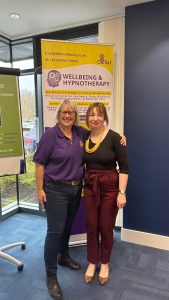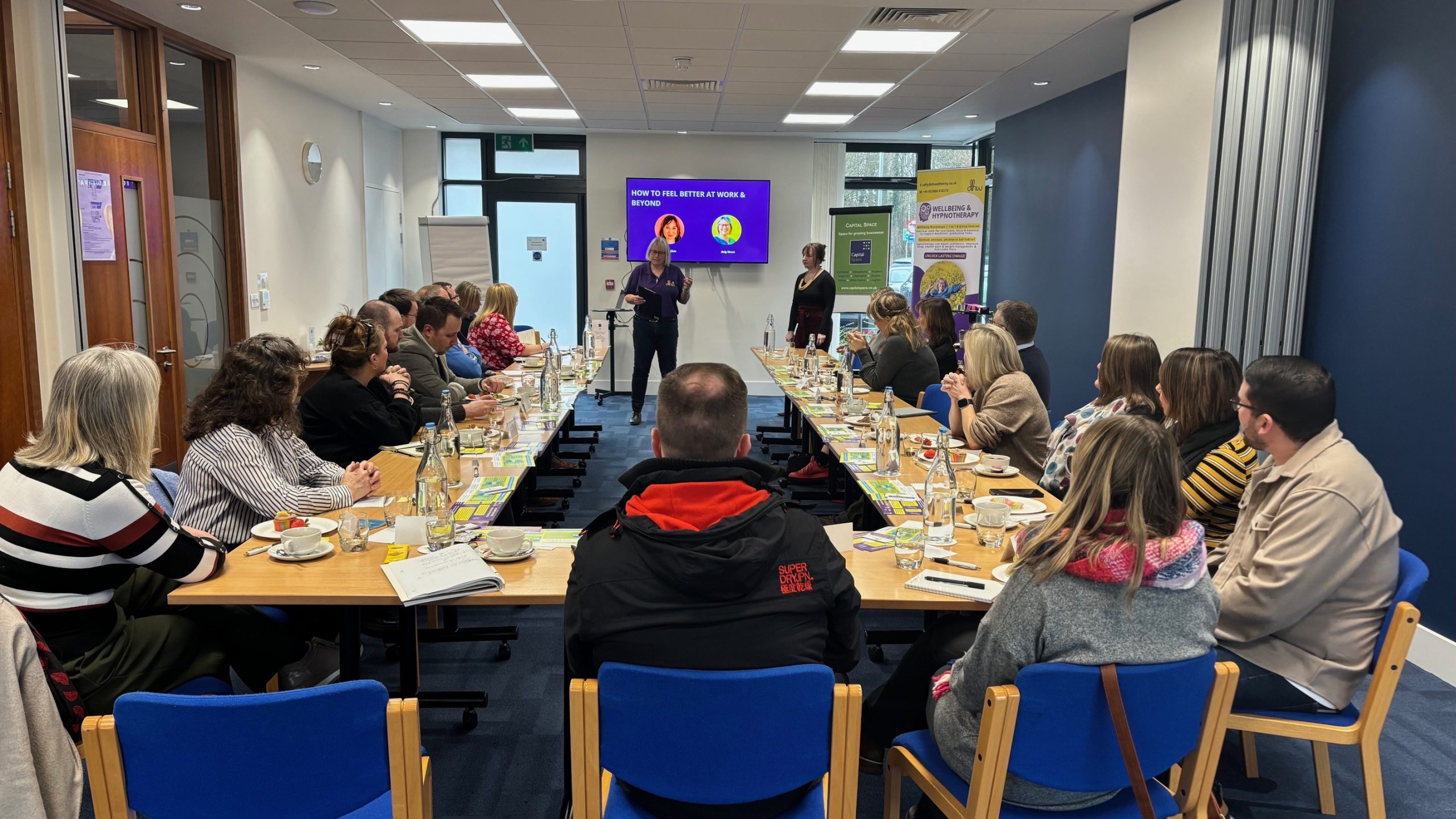How to feel better at work and beyond
Most of us face challenging and stressful situations nearly every day and these are often things we cannot control, especially if you run your own business. However, what we can control is how we react to those situations and keep moving forward. Last month, Career Fulfilment coach Laura Cloke and Hypnotherapist and Happiness Coach Sally Harris came into Kings Hill to host a workshop for small business owners, external customers and employees on how to feel better at work and beyond, providing them with tools and techniques to enable them to thrive at work and to deal with stresses and trials in their daily lives.
Mindfulness is the key to navigating challenging situations

One of the techniques which Sally advocated for was mindfulness. She said: “In today’s busy world, we have to be able to build and improve our resilience. It allows us to bounce back from stressful and challenging situations. Common triggers are work, finance, relationships, health, life changes and daily hassles or negative thoughts. One of the key tools to achieving resilience is mindfulness.”
Mindfulness is about being present, not fretting about the future or dwelling on mistakes and spiralling into self-criticism and blame or thinking about ‘what if’s’. Instead, it is about focusing on what we can control and thinking about the next constructive steps. By focusing on breath work, breathing deeply and consciously, with our hands placed on our bellies and eyes possibly closed, we can achieve mindfulness. Breath work can be practised frequently throughout the day or even at night during periods of sleeplessness. “It helps us to control our emotions, stops us going down a rabbit hole and become more resilient,” said Sally.
Developing yourself at work
It is easy to get into a rut at work, especially if you have been in the same role for a while, therefore, it is imperative to continue self-development within work as well as outside. Laura spoke on development at work – whether it’s reaching for a promotion, seeking a better work-life balance, juggling multiple tasks as a business owner, learning a new skill or saying no to someone.
Self-development can take many forms, and it starts with small, consistent actions that you can build on and grow. The key is to avoid limited belief patterns i.e. saying: “I don’t have the time” or “I can’t do that”. Instead, making the first step regardless of whether you have a plan is crucial in getting started. Self-development is not solely action related, but our thoughts and feelings all feed into how we behave. Therefore, taking responsibility for our actions, thoughts, behaviour and mood is critical to stop blaming others for our own failures or challenges.
Laura shared her Career Development Framework to help attendees to structure their development around their short-, medium- and long-term goals. Identifying what you want to develop in your career can feel like a daunting task. By looking at different aspects of your development, what you want to maintain, what you want to improve and exploring options for your future, can make the process much more manageable.
Time management techniques are the key to success
Sally said time management techniques are key: “When you manage your time well, you focus on what matters, become more decisive, reduce stress and build resilience.” Planning ahead, being realistic about what goals were possible, taking 5 min reset breaks during the day to re-energise and unburdening the mental load by creating digital lists divided into ‘Urgent’, ‘Important’ and ‘Can Wait’ categories were all sound time management techniques.
Other options to improve time management could include: switching off emails so you could focus on a project or paper; focusing on mono tasks rather than multi-tasking which is less efficient and productive; offloading responsibilities or tasks to colleagues where possible and learning to say no.
Taking a step back and reflecting on your work
People often forget to take a step back and reflect during work hours. To do this, Laura shared a variety of techniques that help you to reflect on what worked, what didn’t and what you could do differently next time to improve your performance. One often overlooked tool is asking for feedback but it is important to be specific an d intentional when asking what you want to know. Tell the person you are asking for feedback what you are working on and what you would like to know.
Arguably, the most important aspect of looking after your wellbeing is remaining hydrated, nourishing yourself well, sleeping enough, exercising when you can and getting fresh air. All of these ensure your energy levels remain high, and your immunity levels are good.


